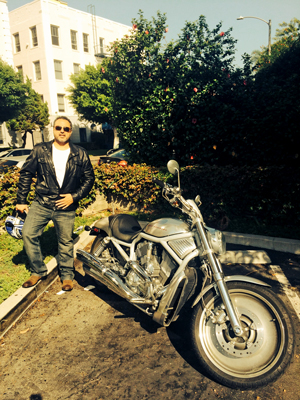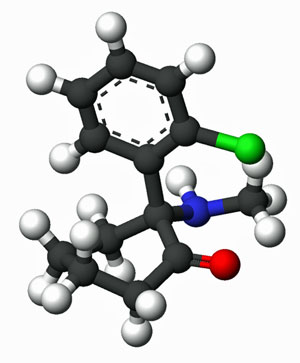



News, People and Organizations
Biggest Gut Punches to the Federal Neglect of ME/CFS – Two federally funded reports land a gut punch to the NIH’s historical neglect of chronic fatigue syndrome (ME/CFS). They both call for urgent increases in support.
Biggest Loss – one of our most innovative physician/researchers Dr. Martin Lerner dies. Almost by himself, Dr. Lerner kept the viral hypothesis of ME/CFS alive in the research literature for years. He had been working on his new antiviral protocol for Vistide when he died.
Most Exciting New Hire – Harley rider, researcher and non-profit founder Zahe Nahle eschews bigger salaries to order, to make a bigger difference in ME/CFS at the Solve ME/CFS Initiative. Is he a wave of things to come?
Most Convincing Argument that ME/CFS is a Serious Disorder – Whitney Dafoe’s horrific story gets spread to several media outlets – making it clear that ME/CFS is something you wouldn’t wish on your worst enemy.
Most Jaw Dropping Statement – At an event to raise money for his work with the Simmaron Research Institute Ian Lipkin states we will solve ME/CFS in three to five years (given the resources).
Biggest Organizational Makeover – The hiring of Zaher Nahle finishes a complete makeover for The CFIDS Assoc…I mean The Solve ME/CFS Initiative with its new location (Los Angeles), President (Carol Head), Research Director, staff and, of course, name.
Journalist of the Year Award – many journalists penned important articles highlighting how serious (and underfunded) ME/CFS is, but David Tuller wins the prize with his immense (and unpaid) investigative efforts on the PACE studies.
Best Indirect Sign ME/CFS is Catching on – Ph.D’s flood the Solve ME/CFS Initiative with their applications for the Research Director job.
Most Impressive Scientific Advisory Board – The Open Medicine Foundation’s Scientific Advisory Board boasts three (yes, three!) Nobel Laureates (and a couple of other researchers who might someday get one.)
Most Intriguing ME/CFS Alumni? – Zaher Nahle proposes the most important scientist of the 19th century, Charles Darwin, may have had ME/CFS. Welcome to the club Charles….
Research
Most Exciting Research Effort – The sheer scope of Ron Davis’s/Open Medicine Foundation severely ill study makes one wonder what aspects of ME/CFS it could uncover.
Least Exciting Research Effort – the NIH’s portfolio on fibromyalgia, much of which focuses on mind/body research, is truly yawn inspiring. The quintessential pain syndrome deserves better.
Best Computer Simulation – a computer simulation demonstrates how mitchondrial problems could explain ME/CFS and produce post-exertional malaise
Most Interesting Pathogen Study – A Simmaron Research Foundation collaboration begins studying the incidence of insect-borne illness in ME/CFS for the first time.
Best “Subset of the Year” Award – FInally a subset of the year award. The identification of a surprisingly large relapsing/remitting subset in ME/CFS vied with Dr. Peterson’s brilliant atypical/typical ME/CFS subset, but the Lipkin/Hornig long duration/short duration ME/CFS subset won out.
The Chickens Finally Come to Roost Award – Four years, 10 follow-up studies (and several investigative reports later), the PACE trial authors are finally obliged to surrender at least some of their data and one journal begins an investigation.
Most Exciting Research Study to Look Forward – The Japanese neuro-inflammation studies Pt. II – hopefully to be published this year.
Biggest Missing Study – in 2014 the Zinn’s light up the Stanford Symposium with studies indicating that people with ME/CFS have limbic encephalitis. Stanford’s June newsletter states the paper is under review at a journal, but as of Jan 1st no study has been published.

Several groups are working on neuro-inflammation studies in ME/CFS. The Japanese may be the first to publish
Nicest Confluence of Results – the Chronic Fatigue Initiative’s big immune study, the CFI/Simmaron Research Institute and the Houghton immune study all suggest reduced immune activation is present in ME/CFS.
Most Crossed Purposes Moment -In the Spring Newsletter, Dr. Montoya states he has, in collaboration with Ian Lipkin and Mady Hornig, found “exciting evidence of pathogens in ME/CFS. Six months later in Simmaron presentation Ian Lipkin says pathogens are not the problem in ME/CFS.
Longest Wait (Ever?) for a Study – Two and a half years after the CDC presented the preliminary results it’s ME/CFS Experts multisite study at the FDA Workshop, none have been published. Meanwhile it embarks on a greatly expanded multisite ME/CFS experts.
Hypothesis We Most Want to Hear About – It took a while (over a year!) for Van Elzakker to get the go ahead to do the scans to test his vagus nerve hypothesis, but that work reportedly is underway.
Biggest Potential Research Study – Ever – Nancy Klimas aims for 1,000 and want 10,000 people to participate in her crowdfunded study to uncover the genetic links in ME/CFS.
Most Confusing Situation – Treating the IOM’s clinical definition as a research definition, Leonard Jason whacks it again and again – turning much of the patient community against it.
Treatment and Symptoms
Most Amazing ME/CFS Treatment Success Story – Carl Gerhard-Gottfries, a psychiatrist, successfully treats himself for 40 plus years using a staphyloccocus vaccine. Unfortunately, for the rest of us, the company stops making the vaccine…
The Treatment Most Pregnant with Possibilities – A bed-bound fibromyalgia patient on 16 Tramadol a day (and still bedbound….) gets her life back after vagus nerve stimulation.
The Strangest Pain Breakthrough – A young fibromyalgia patient with a spine turning to dust gets relief from a drug classified as a hallucinogen. Ketamine is so effective as a pain reliever and anti-depressant, however, that Ketamine knockoffs could revolutionize treatments for pain and mood disorders.
Best Hope for Herpes Virus Sufferers – With Chimerix’s Vistide knockoff and uber herpesvirus drug brincidofovir put on fast track status it could become available, some reports suggest, as early as 2016…..
Biggest Up on Your Feet Moment – ME/CFS researchers completely eliminate orthostatic intolerance and cognitive problems by injecting a drug that increases blood flows to the brain. Next up – figuring out exactly how the drug did that.
Biggest Head Turner – CBT advocate Simon Wessely says it’s time for a federally funded UK Rituximab trial
Biggest Treatment Trial – Daiichi Sankyo begins a 1,000 – that’s right – a 1,000 person FM treatment trial of mirogabalin – a Lyrica update they believe will be more effective and have fewer side effects.
Biggest “Say What?” Moment – While the IOM and P2P reports call for urgent funding increases, Dubbo study originator Andrew Lloyd pens an “all is well in the world of ME/CFS” type editorial lauding CBT/GET and stating that an “exhaustive array” of clinical trials have been done in ME/CFS (????)
The Disorder You Most Don’t Want to Have with Fibromyalgia – fibromyalgia is bad but a study finds that fibromyalgia plus migraine – well, that’s really bad.
Seven Ways to Get Your Friends to Get ME/CFS – Check out seven ways to get your friends/family to understand “chronic fatigue syndrome”
The Scariest Thread of the Year Award – people with ME/CFS and FM eloquently describe their symptoms. (Not for the faint of heart).
Most Disturbing Poll Result – the vast majority of the people with ME/CFS/FM describe their disease as “progressive”
Best Move For an Under-appreciated Drug – a company contracts to produce standardized forms of low dose naltrexone for research.
Most Undue Influence by Two Countries – simply by pouring money into CBT and GET studies, the UK and the Netherlands manage to almost entirely pre-empt the treatment field in ME/CFS.
The Head Stuck in the Sand Award – While little Norway produces a major Rituximab trial and advocates in the UK raise funds for their own trial, the NIH, which funds hundreds of drug trials a year, continues acting as if the Rituximab/ME/CFS results do not exist.
Most Remarkable ME/CFS Recovery Story – Mike Dessin’s recovery from near death several years ago still takes the cake, but this year Dan Moricoli’s slow but sure recovery from being in a near comatose state wins the prize this year.
Most Gratifyingly Consistent Results – As the big Norwegian ME/CFS Rituximab trial continues, studies from Fluge and Mella keep appearing with gratifyingly consistent results
Most Welcome Drop – Dr. Unger drops the CDC Toolkit following the publication of the IOM Report
Most Innovative Patient Effort – a neuroscientist with ME/CFS, Joshua Grant, begins MENDUS (MEND US!) – which allows people with ME/CFS or FM or other disorders to devise their own clinical trials.
The Almost Given Up for Lost Award – The Solve ME/CFS Initiative announces that the mysterious two drug combination for ME/CFS that it and Biovista came up several years ago, will get announced this year.
Most Unusual Clinician – Dr. Thomas Henderson, psychiatrist, reports adolescents with ME/CFS are often misdiagnosed with depression and regularly uses antivirals to treat ME/CFS patients.
Biggest Shift in Doctor’s Offices Coming – the CDC’s decision to oversee Lyme disease diagnostic tests suggests some tests Lyme doctors rely upon for diagnoses may disappear.
Most Memorable Diet Quote – Dr. Lipkin on how the most celebrated pathogen hunter in the world likes his hamburger cooked: “burn it”…..
Advocacy
Most Exciting Announcement – NIH Director Francis Collins states the NIH will move ‘aggressively” to significantly increase funding for chronic fatigue syndrome (ME/CFS). NINDS director Koroshetz will the lead the new Trans NIH Working Group and “decision-makers” will be present for the first time. “Just watch us” he says.
Quickest Backsteps – Koroshetz’s leadership of the Working Group will be temporary and the leadership position will rotate between members, no changes in the Working Group’s membership are seen (yet), and ME/CFS is not listed among the hundreds of diseases NINDS states it’s working on in its website.
Best Timing – not long after Francis Collins says he hopes to get the money he needs to quickly jumpstart ME/CFS funding from an increased NIH budget, the NIH gets $2 billion extra dollars to play with in 2016.
Weakest Argument: The PACE trial authors state those seeking to overturn the PACE trial results are “a vocal minority”. As the pressure mounts, the unvocal majority supporting the PACE trial remains remarkably silent.
Biggest Oops! – The CDC line-item for ME/CFS the budget gets temporarily zeroed out because (oops!) we forgot to lobby for it.
Best Advocacy Catch – ME/CFS advocate Jennie Spotila spots the fact that the CDC’s line item for its CFS program in the budget has been zeroed out. Jennie’s announcement triggers an advocacy campaign which gets the funding restored
Best Advocacy Move – Beth Mazur and Jenn Brea begin MEAction – an advocacy portal for ME/CFS
Best Sign the ME/CFS Community is Getting Its Act Together – Advocates and groups band together to create a united effort to increase support for ME/CFS
Nicest Surprise from a Federal Agency – the CDC sends out letters to scores of groups and advocates asking them to collaborate on their new educational materials










As always, Cort, you have been instrumental in keeping all of us informed. I thank you immensely for your diligence. The most exciting item for me are the words of Ian Lipkin. He will do what he says. I’ve never been so hopeful. As I was reading about his thoughts the movie 2001 came on and the monolith is coming up again now…….sincerely, Hipjaven@gmail.com
Thanks, Cort, for your summary of a very exciting year for me/cfs. Now we need to be ready to advocate for equal funding based on our disease burden and research geared towards biology of our disease. As patients, we want results to move quickly and safely from the bench to the bedside.
You forgot one:
Most effective and well regarded ME/CFS/SEID/CFIDS/FMS advocate/journalist ever: Cort Johnson.
🙂
I heartily agree, while appreciating all of us who are contributing in some way to this team effort.
PK best words and print, he is the greatest!
Any idea how to get involved in the genetic study by Nancy Klimas? Or is it restricted to certain areas and locations. I’m in the UK.
Hopefully it’s not limited to the US. I don’t see why it would be but you never know. I will find out.
The other thing I’d like to know is if the data exchange in Nancy Klimas’ study will be bi-directional, that is, if patients who submit their genetic details will get some sort of report back, once the study has some results. This is what happened when I submitted a blood sample for Les Simpson’s study of abnormal blood cell shapes. I actually got back a photo of my blood cells under the microscope, with the many abnormal cells circled and quantified by percentage. I also got a printout of what symptoms would be associated with my blood cell abnormalities, and what supplements might be helpful.
Here is the info on Dr Klimas’ gene study Kate (you can participate from anywhere in world): http://www.nova.edu/nim/research/mecfs-genes.html
Big thank you for this and all your work in keeping us informed.
Hi Cort
Just one suggestion – if you can add to this blog post a thankyou to each of the large donors – particularly those who have been funding Ron Davis and Ian Lipkin’s work.
There were some very generous donations and I feel if one is to report everything that has happened in the CFS/ME world this year than their contribution should be mentioned – the outcome of Ron Davis’s and Ian Lipkins work could well be a game-changed and if it is, then it will be in no small part due to the generosity of the people supporting our scientists.
Thanks for the blog and all your work. 2015 was a good year for us, things have been progressing quite rapidly now, lets keep it going!
It was a year some really big donations showed up for sure – A good sign! Thanks
What a cheering article! Thanks, Cort. 🙂
Could you tell me what you were talking about here?
“Biggest Up on Your Feet Moment – ME/CFS researchers completely eliminate orthostatic intolerance and cognitive problems by injecting a drug that increases blood flows to the brain. Next up – figuring out exactly how the drug did that.”
I must have missed that blog post!
Oh! There’s a link that I couldn’t see. Sorry!
BTW, I think any review of 2015 should include Professor James Coyne – I’ve never seen anyone ‘get it’ so quickly or so powerfully and he’s like a man on fire now, doing fantastic advocacy on our behalf. He hasn’t stopped blogging, tweeting and Facebooking since he read the awful PACE long-term follow-up study.
Twitter is the easiest way to follow him:
https://twitter.com/CoyneoftheRealm
Yes, indeed. I had never heard of him before..Thanks